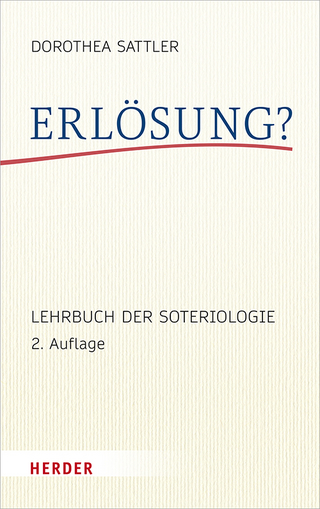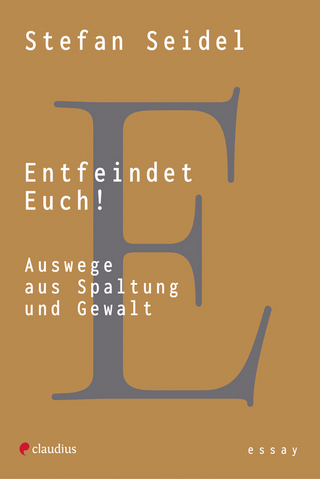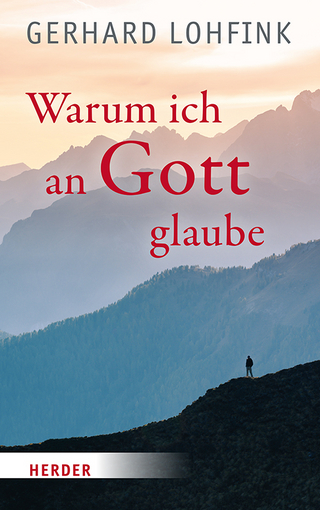
"And on this Rock I Will Build My Church". Vol.3
disserta (Verlag)
978-3-95935-390-8 (ISBN)
Schaff's work, unlike other works in the field, covers a multitude of church history-related aspects - from church doctrine, policy, events and processes to aspects of social moral and family life, arts and more. It is a very comprehensive text, extremely well-written and readable, rich in material and sources used, and attests to the excellence of protestant German theological scholarship under the influence of emerging Historical-Critical Biblical Exegesis at his time. This third volume in this series covers the period from Gregory VII. to the eve of the Protestant Reformation (A.D. 1049-1517).
Dr Muhammad Schmidt, of German descent and born in 1950, is a retired bishop consecrated in the Anglican rite. During his active life, he has served Anglican churches in different developing nations after completing his career as university professor for Linguistics in Far East Asia and other nations. Schmidt, although retired now, is still active in publishing books and occasionally delivering lectures upon invitation.
Textprobe:
CHAPTER V: INNOCENT III. AND HIS AGE. A.D. 1198-1216:
36) Innocent's Training and Election.
The brilliant pontificate of Innocent III., 1198-1216, lasted as long as the combined and uneventful reignsof his five predecessors: Lucius III., 1181-1185; Urban III., 1185-1187; Gregory VIII. Less than two months, 1187; Clement III., 1187-1191; Coelestin III., 1191-1198. It marks the golden age of the mediaeval lpapacy and one of the most important eras in the history of the Catholic Church. No other mortal has be-fore or since wielded such extensive power. As the spiritual sovereign of Latin Christendom, he had no rival. At the same time he was the acknowledged arbiter of the political destinies of Europe from Constantinople to Scotland. He successfully carried into execution the highest theory of the papal theocracy and anticipated the Vatican dogmas of papal absolutism and infallibility. To the papal title "vicar of Christ", Innocent added for the first time the title "vicar of God". He set aside the decisions of bishops and provincial councils, and lifted up and cast down kings. He summoned and guided one of the most important of the councils of the Western Church, the Fourth Lateran, 1215, whose acts established the Inquisition and fixed transubstantiation as a dogma. He set on foot the Fourth Crusade, and died making preparation for another. On the other hand he set Christian against Christian, and by undertaking to extirpate religious dissent by force drenched parts of Europe in Christian blood.
Lothario, Innocent's baptismal name, was born about 1160 at Anagni, a favorite summer resort of the popes. He was the son of Count Trasmondo of the house of the Conti de Segni, one of the ruling families of the Latium {Like Hildebrand, Innocent may have combined Germanic with Italian blood. Upon the basis of such family names among the Conti as Lothaire and Richard, Gregorovius finds evidence of Lombardorigin}. dinals, he was rapidly promoted, and in 1190, at the age of twenty-nine, was appointed cardinal-deacon by one of them, Pope Clement III. Though the youngest member of the curia, he was at once assigned a place of responsibility.
During the pontificate of Coelestin III., a member of the house of the Orsini which was unfriendly to the Conti, Lothario withdrew into retirement and devoted himself to literature. The chief fruit of this seclusion is the work entitled The Contempt of the World or the Misery of the Mortal Estate {The de contemptu mundisive de miseria conditionis humanae was first printed at Ulm, 1448, then at Lyons, 1473, Nürnberg, 1477, etc. See Migne's ed. 217, 701-746}. {Mysterium evangelicae legis et sacramentum eucharistiae or de missarum mysteriis.}t composed an Exposition of the Seven Penitential Psalms. While pope he preached often both in Rome and on his journeys. His sermons abound in mystical and allegorical figures. Of his letters more than five hundred are preserved.
The Contempt of the World is an ascetic plaint over the sinfulness and woes of this present life. It proceeds upon the basis of Augustine's theory of total depravity. The misery of man is described from the helpless-ness of infancy to the decrepitude of age and the sufferings of the future estate. Pessimistic passages are quoted from Jeremiah, Ecclesiastes, and Job, and also from Horace, Ovid, and Juvenal. Three master passions are constantly tormenting man,-avarice, lust, and ambition,-to which are added the innumerable ailments of the body and troubles of the soul. The author deplores the fate of masters and servants, of the married and the unmarried, of the good and the bad, the rich and the poor. "It is just and natural that the wicked should suffer; but are the righteous one whit better off? Here below is their prison, not their home or their final destiny. As soon as a man rises to a station of dignity, cares and trouble increase, fasting is abridged, night watches are prolonged, nature's constitution is undermined, sleep
| Erscheinungsdatum | 13.07.2017 |
|---|---|
| Sprache | englisch |
| Maße | 190 x 273 mm |
| Gewicht | 1439 g |
| Themenwelt | Geisteswissenschaften ► Religion / Theologie ► Christentum |
| Schlagworte | Christentum • Christentum, Geschichte • Church history • History of the Christian Church • Kirchengeschichte • medieval period • Philip • Philip Schaff • Pope Gregory VII • SCHAFF |
| ISBN-10 | 3-95935-390-1 / 3959353901 |
| ISBN-13 | 978-3-95935-390-8 / 9783959353908 |
| Zustand | Neuware |
| Haben Sie eine Frage zum Produkt? |
aus dem Bereich


